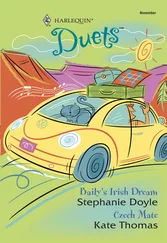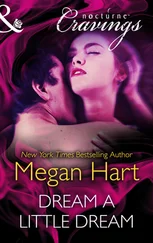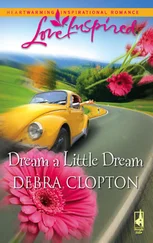Zhang Shu devised a plan as he walked around in front of the counter. The thin woman stood there, silent and expressionless.
“May I take a look at that book of paintings?” He leaned on the glass counter, head in hand, his bristly hair sticking through his fingers. He wanted to attract her attention, whether by making her angry or happy.
He flipped through the book and let her get another for him. This was a book on Dunhuang printed in Japan. It was quite beautiful but cost more than two hundred yuan. He looked at it for a while and then gave it back to her.
“Too expensive,” he commented.
He kept on this way until he had looked through every book in the place. Then he asked to look at the rubbings. After looking at each one, he offered his harsh criticism.
But she remained unmoved.
“Do you have rubbings from the Tantric Cave?” he suddenly asked, looking her in the eye.
She didn’t utter a word.
“Did you understand what I said?” He repeated himself, gesturing. After a long while, after he had lost all hope, she suddenly spoke.
“How much are you willing to pay? she asked.
3
So she could speak Chinese after all!
He was as startled as if he had just heard a clay Buddha speak. He quickly replied that he urgently needed a rubbing from the Tantric Cave and as long as it was the real thing, price didn’t matter, acting as if he had loads of money. Only then did the thin woman size him up, and after that she clapped her hands twice without any expression. A coarse-looking man appeared immediately from out of the back room and the two of them began chattering in a language Zhang Shu could not understand. Then the woman gestured for him to follow her.
She led him down into a dirty, dilapidated basement. Several times while walking down the stone steps he nearly slipped and fell on the filth. With each descending step, his nervousness and curiosity increased. When they arrived at the bottom he almost fainted from the stench of what smelled like nitrate fertilizer made from years of urine. He quickly covered his nose and then shoved his hands in his pockets. The thin woman turned on the light as if nothing were the matter and opened a greasy cabinet.
In alarm, he looked around for fear lest he be carried away like Wuye. But there was no one else to be seen. The thin woman thrust a pile of stone rubbings under his nose.
He wanted to examine them upstairs, but the woman refused. By the dim light, he could see that the rubbings were awkwardly executed and depicted Amitabha Buddha in a number of different positions, which were ugly like bent earthworms. They were without a doubt also fakes.
“How much for one?” he asked.
She raised five fingers and then added a zero.
“It’s really hard to imagine that a descendant of Yu-Chi Yiseng could be so greedy,” said Zhang Shu, enunciating each syllable.
The thin woman raised her eyebrows. It was only then that he realized she was capable of facial expressions. Before he could think, he saw the flash of a blade and felt something hard and sharp against his belly.
“Tell me what you are doing here!” Her Chinese was better than Yu’er’s and the old woman who guarded Cave 73.
Although this incident would affect Zhang Shu for a long time afterward, he was exceptionally calm at the time.
“Put the knife down. We can discuss this.”
She didn’t lower her knife and looked as if she were going to cut his belt.
He then told her the intensely interesting tale of Yu-Chi Yiseng and Lakshmi. Naturally, he repeated some of the legend Yu’er had told him, but later he found out that it was the last few words he spoke that moved the thin woman.
“Actually, before I heard this story I was much more interested in Yiseng’s painting. I’ve heard that he is famous and the representative of the Tang dynasty Yutian School of painting. He was esteemed by the Taizong Emperor of the Tang dynasty and that large frescoes by him can be seen at the Ci’en Temple and the Feng’en Temple in Xi’an, as well as at the Dandan Temple in Hotan, Xinjiang. I think it’s unfair that a painter of his stature has not been recognized as he should be in the history of Chinese art. I want to do research on him and his relationship with Dunhuang. .”
At that point, the thin woman’s beautiful eyes were wide open and fixed on him. He felt that the hard object at his waist had eased off a bit.
4
When Xingxing was still in primary school, she saw part of a fresco titled The Transformation of the Western Paradise in her sister’s history textbook. Later, she saw the same painting in a variety of books. If she closed her eyes, she could still picture the composition, the flying bodhisattva, the red and green lotuses, white cranes, and mandarin ducks, but now that she found herself standing before the genuine article, she was profoundly moved.
The Transformation of the Western Paradise was located in Cave 220, a cave of great importance that dated from the early Tang. It was a square cave with a compound ladder ceiling, the center of which was painted with beautiful peonies. Waves of rolling grass and hanging curtains were spread all around on which were painted a thousand Buddhas. An inscription above the door to the cave indicated that it dated from the second year of the Chuigong reign period (AD 686).
The huge fresco titled The Transformation of the Western Paradise was executed on the south wall of the cave. Amitabha is depicted with attendant bodhisattvas Guanyin and Mahasthamaprapta surrounded by a multitude of bodhisattvas and devas. The Buddha appears solemn and dignified. In the foreground of the painting are a pair of dancers. The graceful dancers are in the classic posture of “heavenly musicians playing the pipa.” On ancient Persian-style carpets, peacocks dance gracefully and cranes call with their necks extended. In the upper part of the fresco yakshas fly scattering flowers, and musical instruments played by themselves; below, blue ripples spread in the pools where red lilies and green lotuses set off each other. Divine children sat properly with palms pressed together or played in the water. Waterside pavilions faced rows of buildings with terraces thronged with dancers and musicians as a multitude of Buddhas descended on clouds to enjoy the dancing and marvelous music.
The artisans of old were so imaginative.
Xingxing thought of her dream of the World of Ultimate Bliss. When she was a child, her maternal grandmother had told her about the World of Ultimate Bliss, after which she had a dream in which she penetrated the toilet in their house and made her way through a labyrinthine path full of twists and turns until she suddenly came out into the open. The first thing she saw was a beautiful wood of tall tress and bushes, all a bright and shining just washed green. Bright red berries were hidden among the leaves, shining like stars. The ripe fruit fell continuously to the ground where they immediately turned into red gems. Continuing on was a natural flower garden in which the untended flowers grew in a riotous profusion of color. On nearly every blossom was an exquisitely wrought bird. The blood-red plumage of the birds was clearly the color of the underworld! Even more strange was that each bird held a berry like a red gem in its bill. The darting colorful birds looked like they would shatter at any moment in the air. And the brilliant red of the flowers looked liked coagulated blood, their crystal blue and dark green looked like they had been soaked through with seawater. What at first sight appeared to be flowers turned out to be birds and beasts. Amid all those colors stood a white archway on which was written: The World of Ultimate Bliss. Beyond the archway was a huge natural fountain. The shimmering drops, like a dream, sprayed water on the trees and flowers, the drops trembling with exquisite sound, and with that of the wind, flowers, trees, birds, and beasts combined to compose a heavenly music.
Читать дальше
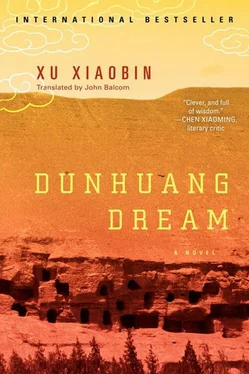


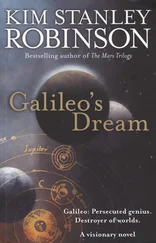
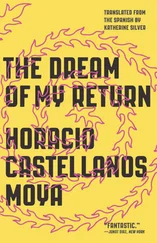

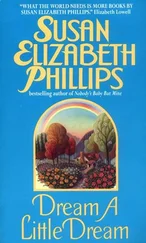
![Theresa Cheung - The Dream Dictionary from A to Z [Revised edition] - The Ultimate A–Z to Interpret the Secrets of Your Dreams](/books/692092/theresa-cheung-the-dream-dictionary-from-a-to-z-r-thumb.webp)
